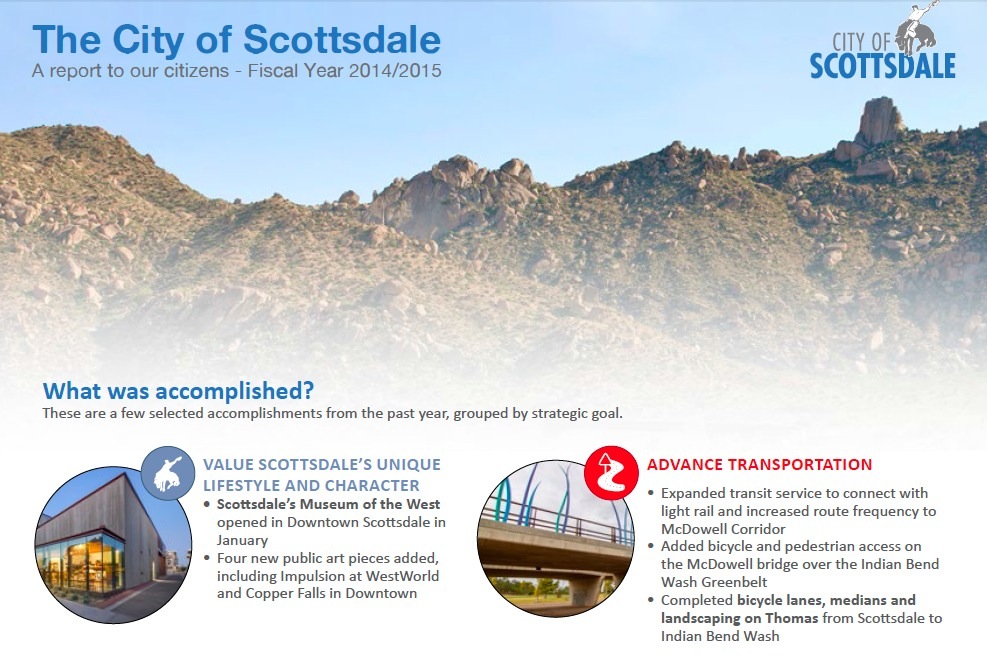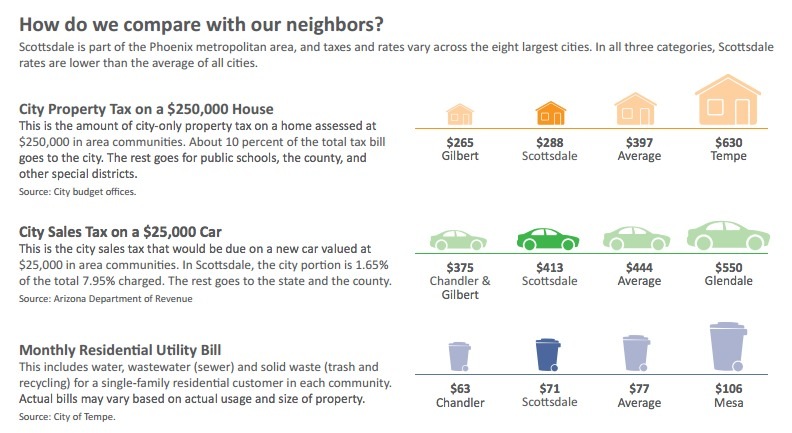Connecting state and local government leaders
Here’s why a ‘less is more’ approach to government transparency leads to a better informed citizenry.
Editor’s Note: This article originally appeared in “Budgeting Challenges and Opportunities for State, County and Municipal Governments,” a new Route Fifty ebook. | DOWNLOAD THE FULL EBOOK
Get a group of people together for a discussion and eventually the subject turns to government: “What do we get for our tax dollars?” “There is so much waste, fraud and abuse in government spending.”
In general, governmental entities do an abysmal job communicating to the public the business of government and leave the bulk of status reporting to media outlets, which often do not paint a positive or representative picture.
Surveys conducted by a variety of non-profit organizations, past and present, show many citizens are inclined to mistrust federal, state and local government. Citizens, in general, cannot grasp the immense volume of technical information produced and, because governments do not communicate well, this leaves the public confused and uninformed.
In the 1967 film “Cool Hand Luke,” the Captain famously announces to the prisoners: “Now what we’ve got here, is a failure to communicate.” Financial reports the size of phone books, while informative for a specific audience, are not an effective means of communicating with the public in today’s data-on-demand-driven society. Effectively and efficiently communicating the business and value of government to the public is an ongoing challenge.
One solution to providing citizens something they can use and understand is to develop a report that is non-technical and succinct, and provides web links that can be checked for reliability and more detailed information. AGA created such a document—a four-page Citizen-Centric Report (CCR) that exemplifies the often repeated mantra, “less is more.”
“Less” is achieved by the four-page structure of the CCR, and “more” is the broad-based information that provides easy-to-digest content about an entity’s revenues, spending, achievements and challenges as well as priorities for the future.
The CCR can be an answer to the reporting dilemma because it helps the reader answer the question “are we better off today than we were last year?” in plain language. It is a snapshot—or “Reader’s Digest” version—look into an entity’s financial and program performance.
Page one of a CCR typically displays demographics, governance structure, mission and goals of the entity while page two presents key service and activity performance information regarding achievement of specific goals. Page three provides financial information, predominately costs and revenues, while page four identifies the organization’s major challenges and provides a look to the future.
So Why Produce a CCR?
Since 2008, a variety of governments and governmental entities have prepared a CCR for their constituents. Some communities such as Tallahassee, Florida; the Idaho State Police; the state of Idaho and the Massachusetts Developmental Disabilities Council, have all found value in creating the report, whether online, in paper format, or both.
Brent Stockwell, the assistant city manager for Scottsdale, Arizona, states: “The city manager hands out the report at each public meeting he attends, and uses the information for his public presentations, and he has received good feedback. The report is also provided to all board and commission members and we make it available to visitors at City Hall. It has been provided to local realtors, and also to prospective businesses.”
Article continues below ...


Teresa Baker, public information officer at the Idaho State Police, says: “The statistics included in the publication are those most often asked for by the media. Additionally, stories featured in the CCR each year are selected because the topics have been of interest to the media and community. Often these stories provide the ISP a medium to finish telling the story begun in the media.”
Another creative use of the CCR in Suffolk, Virginia, and Tallahassee, is utilization of the report to teach middle- and high-school students about local government.
The Territory of Guam, with the enactment of PL30-127, effective Jan. 1, 2010, requires all governmental
entities to submit a CCR and post it on their website, including the Office of the Governor, Judiciary of Guam and Guam’s Legislature. Several agencies have received accolades on their reports including the University of Guam, the Office of the Attorney General and the Guam Power Authority.
Several federal government agencies produce a CCR-type
document, including the Architect of the Capitol, U.S. Small Business Administration, the U.S. Patent and Trademark Office and the National Science Foundation.
Tim Gribben, deputy chief financial officer at SBA, says, “It is possible for a government agency
to produce a CCR that is used and useful. Too many times, agencies feel they need to include a lot of data and verbiage to explain what they do, but I have learned by following the CCR guidelines we can say a lot more by clearly presenting the data in a condensed, easy-to-understand format. We can produce reports that satisfy the public’s desire for information from their government.”
Build Trust in Government
CCR is a customer-focused document designed to give the public a better sense what of their government is doing and what it spends on those services. It provides easy access to key information without having to sort through pages and pages of complicated reports. Finally, the CCR provides an opportunity to begin conversations and an
avenue into discussion with citizens.
Setting the stage with early identification of challenges the jurisdiction will face helps build trust and credibility with the public by communicating to the public, informing the governing body, and educating children and young adults. Generating the conversation with a “quick-read” report that is easy to understand is an opportunity not to be wasted. There will be naysayers, but more likely there will be those citizens who say: “I didn’t know that 35 percent of my tax dollars is spent on public safety.”
A more knowledgeable public can lead to a more engaged public. Use the CCR as the springboard to a better-informed citizenry and to build government trust with the public.
Ann M. Ebberts is chief executive officer of AGA, the member organization for financial professionals in government, which leads and encourages change that benefits the field and the citizens it serves. Eveanna B. Barry is a consultant with the Citizen-Centric Reporting Initiative.

NEXT STORY: Renewable Energy Projects May Get Boost From Well-Heeled Private Sector Partners



